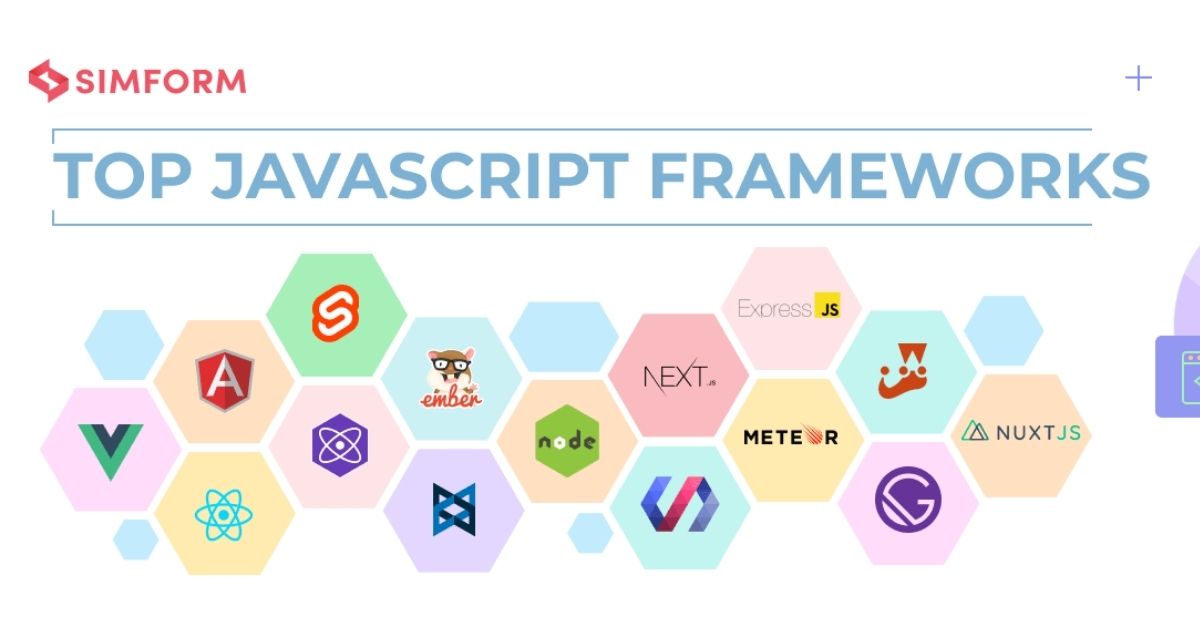Digital Insights Hub
Your source for the latest trends and insights in digital technology.
JavaScript Frameworks: The Endless Playground for Developers
Explore the ultimate guide to JavaScript frameworks—unlock endless possibilities and elevate your development game today!
Understanding the Basics: What Are JavaScript Frameworks and Why Use Them?
JavaScript frameworks are pre-written JavaScript code libraries that serve as a foundation for building web applications. They provide developers with a structured approach to web development, enabling them to create dynamic and interactive user experiences more efficiently. Major frameworks, such as React, Angular, and Vue.js, come with built-in solutions to common challenges like DOM manipulation, state management, and routing. By using a framework, developers can avoid 'reinventing the wheel' and focus on creating unique features, ultimately speeding up the development process.
There are several reasons to consider using a JavaScript framework for your projects:
- Efficiency: Frameworks streamline the development process, reducing the amount of code that needs to be written.
- Maintainability: Structured code makes it easier for teams to collaborate and for developers to maintain and update applications.
- Performance: Many frameworks come optimized, helping to ensure that applications run smoothly and efficiently.
- Community Support: Popular frameworks have large communities that provide resources, plugins, and support, making it easier to resolve issues that arise during development.

The Pros and Cons of the Most Popular JavaScript Frameworks in 2023
In 2023, JavaScript frameworks continue to dominate the web development landscape, each offering unique advantages and drawbacks. React remains a top choice for developers due to its virtual DOM feature that enhances performance and its vast ecosystem. Its component-based architecture allows for better code reusability and maintainability. On the other hand, frameworks like Vue.js provide a more approachable learning curve with detailed documentation, making them ideal for beginners. However, Vue may lack some enterprise-level support compared to React or Angular, which can be a concern for larger applications.
Despite their benefits, each framework has its cons. For instance, while Angular is powerful and feature-rich, its steep learning curve and boilerplate code can overwhelm new developers. Additionally, the frequent updates can lead to breaking changes that require continuous maintenance. Similarly, although Angular works well for large-scale applications, it may be overkill for smaller projects. Developers must carefully assess their specific requirements and choose a framework that not only meets their current needs but can also adapt to future demands.
How to Choose the Right JavaScript Framework for Your Next Project
Choosing the right JavaScript framework for your next project can significantly impact development speed, scalability, and overall performance. To begin with, it's essential to identify the specific requirements of your project. Are you building a single-page application (SPA), a mobile app, or a robust backend service? Understanding the nature of your project will help you narrow down frameworks that best suit your needs. For instance, if you're focusing on SPAs, frameworks like React or Vue.js might be your best bets, whereas for applications requiring robust server-side abilities, Node.js could be more suitable.
Another critical factor to consider is the framework's community support and ecosystem. A well-supported JavaScript framework typically comes with a plethora of resources, plugins, and libraries, which can expedite development. You can evaluate community activity through platforms like GitHub or Stack Overflow, where a vibrant discussion often translates to quicker help when you encounter issues. Finally, consider the learning curve associated with each framework. Ensuring that your team is comfortable and proficient with the chosen framework will lead to smoother implementation and fewer bottlenecks during development.